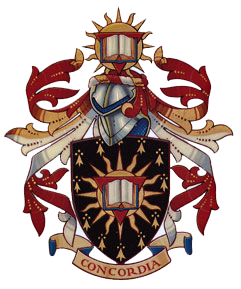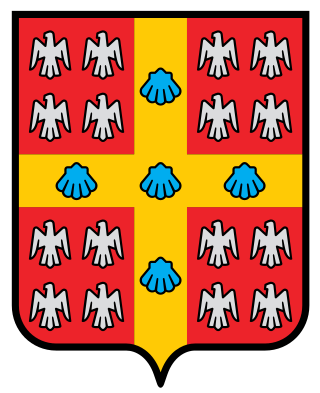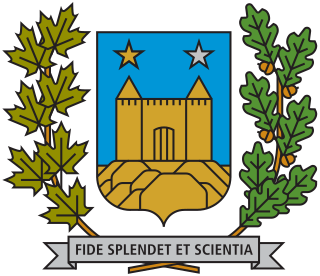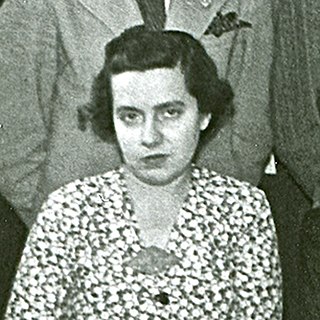
Concordia University is an English-language public research university located in Montreal, Quebec, Canada. Founded in 1974 following the merger of Loyola College and Sir George Williams University, Concordia is one of the three universities in Quebec where English is the primary language of instruction. As of the 2022–23 academic year, there were 49,898 students enrolled in credit and non-credit courses at Concordia, making the university among the largest in Canada by enrollment. The university has two campuses, set approximately 7 kilometres apart: Sir George Williams Campus is the main campus, located in the Quartier Concordia neighbourhood of Downtown Montreal in the borough of Ville Marie; and Loyola Campus in the residential district of Notre-Dame-de-Grâce. With four faculties, a school of graduate studies and numerous colleges, centres and institutes, Concordia offers over 400 undergraduate and over 120 graduate programs and courses.

The Université du Québec à Montréal, is a French-language public research university based in Montreal, Quebec, Canada. It is the largest constituent element of the Université du Québec system.

Université Laval is a public research university in Quebec City, Quebec, Canada. The university was founded by François de Montmorency-Laval as Séminaire de Québec in 1663, making it the oldest institution of higher education in Canada and the first North American institution to offer higher education in French. The university, which was founded in Old Québec, moved to a new campus in the 1950s in the suburban borough of Sainte-Foy–Sillery–Cap-Rouge. It is ranked among the top 10 Canadian universities in research funding and holds four Canada Excellence Research Chairs.

Pierre Dansereau was a Canadian ecologist from Quebec known as one of the "fathers of ecology".

Gérard Bouchard is a Canadian historian and sociologist affiliated with the Université du Québec à Chicoutimi. Born on 26 December 1943 in Jonquière, Quebec, he obtained his master's degree in sociology from Université Laval in 1968 and later obtained his PhD in history from the University of Paris in 1971. Bouchard had authored, co-authored, edited, or co-edited 26 books, and published 230 papers in scientific journals as of 2005.

The University of Montreal is a French-language public research university in Montreal, Quebec, Canada. The university's main campus is located in the Côte-des-Neiges neighborhood of Côte-des-Neiges–Notre-Dame-de-Grâce on Mount Royal near the Outremont Summit, in the borough of Outremont. The institution comprises thirteen faculties, more than sixty departments and two affiliated schools: the Polytechnique Montréal and HEC Montréal. It offers more than 650 undergraduate programmes and graduate programmes, including 71 doctoral programmes.
Guy Laforest is a Canadian political scientist and former director general of the École nationale d'administration publique. Previous to that he was director of the department of political science at the Université Laval, where he taught for more than 29 years. He was educated at Université Laval and McGill University. A former member of the University of Calgary's political science department, Laforest is the author of numerous publications on Canadian public policy. He has previously served as president of the Canadian Federation for the Humanities and Social Sciences.
The Léo-Pariseau Prize is a Québécois prize which is awarded annually to a distinguished individual working in the field of biological or health sciences. The prize is awarded by the Association francophone pour le savoir (Acfas), and is named after Léo Pariseau, the first president of Acfas.
Jean-François Simard is a teacher and Quebec provincial politician and Cabinet Minister. He was a member of the National Assembly of Quebec (MNA) for the riding of Montmorency from 1998 to 2003, representing the Parti Québécois. He served as a delegate minister for over a year in the Cabinet of Quebec Premier Bernard Landry.
Thomas De Koninck is a philosopher from Québec.

Jeanne Lapointe was a Canadian academic and intellectual.

Jean-Philippe Warren is a Canadian sociologist from Quebec.
Andrew Thomas Molson is a Canadian businessman born in 1967 in Montreal. He is the eldest son of Eric Molson and the brother of Justin Molson and Geoff Molson. He is a member of the Molson family.

Francine Descarries is a Canadian sociologist. She is a professor of sociology at the Université du Québec à Montréal. She is considered a leading figure in feminist studies in Quebec.
The Royal Commission of Inquiry on Education in the Province of Quebec, better known as the Parent Commission, was a commission established in 1961 by the newly elected Lesage government to investigate the education system in Quebec up until the 1960s. It was chaired by Mgr Alphonse-Marie Parent, and consisted of 8 members. The resulting report, the Parent Report, published between 1963-66 in 5 volumes, consisted of nearly 1500 pages, and proposed some 500 recommendations that led to following major reforms of the then church-dominated education system:
Classical colleges were a type of school in Quebec. Since its inception in the 17th century, up until the Quiet Revolution of the 1960s, classical college with its eight years of training in classics was the necessary pathway for Quebec's social elites to attain university and other professions. Their studies at the classical colleges would lead to the baccalauréat ès arts.
Fernande Saint-Martin was a Canadian art critic, museologist, semiologist, visual arts theorist and writer. A graduate of the Université de Montréal and McGill University, her career began at La Presse in 1954 before being made editor-in-chief of Châtelaine magazine in 1960. Saint-Martin left the magazine in 1972 and was made director of the Musée d'art contemporain de Montréal. She was a professor and researcher at Université Laval and later Université du Québec à Montréal from 1979 to 1996. Saint-Martin wrote several books and essays, contributed to various art publications and was awarded the Molson Prize in Humanities and Social Sciences from the Canada Council for her work in semiology in 1989. She was also president of the International Association for Visual Semiotics from 1990 to 1994.

Yves Martin was a Canadian sociologist. He was the laity rector at the Université de Sherbrooke and was one of the founders of the Institut de recherche Robert-Sauvé en santé et en sécurité du travail.
Andrée Fortin was a Canadian sociologist, academic, and writer.
Huguette Dagenais is a French-Canadian anthropologist who until her retirement headed the feminist studies program at Université Laval in Quebec City. From 1988 to 1997, she was co-founder and director of the journal Recherches féministes. Together with Denise Piche, she edited an extensive volume of 18 papers on women and feminism published in 1994 as Women, Feminism and Development: Femmes, feminisme et ddveloppement.










